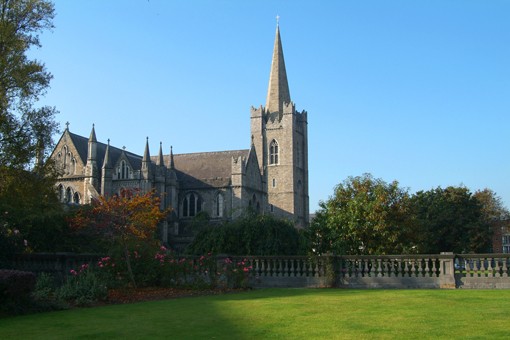 From those who fought and died for Irish independence to writers and musicians known the world over, Dublin has always honoured its famous sons. Book a Dublin hotel and meet the people who made it great with this guide to top 10 places to visit famous Dubliners.
From those who fought and died for Irish independence to writers and musicians known the world over, Dublin has always honoured its famous sons. Book a Dublin hotel and meet the people who made it great with this guide to top 10 places to visit famous Dubliners.In James Joyce's epic novel Ulysses, our hero Leopold Bloom eats a gorgonzola sandwich while sipping Burgundy in Davy Byrnes, a bar which the author himself frequented. On Bloomsday (16 June), Edwardian-clad actors re-enact the Joycean character’s day, which of course includes his cheese-and-wine feast.
21 Duke Street, Dublin 2
Fans of Ireland's biggest band might want to make a pilgrimage to the site of their former studio at 4 Windmill Lane. The entire street is covered with graffiti left by fans in a riot of color and messages of devotion.
4 Windmill Lane, Dublin 2
Kilmainham Gaol was the grim final abode of Padraig Pearse, the political activist who read the Irish Proclamation of Freedom on the steps of the General Post Office during the Easter Rising in 1916. Take a moving guided tour of the cells where Padraig and his comrades were held before their execution.
Inchicore Road, Kilmainham, Dublin 8
Inside Merrion Square’s park, the striking life-size sculpture of writer Oscar Wilde is made from colored local stone. The writer lounges on a rock, as though gazing wistfully at his nearby birthplace, the restored Number One Merrion Square.
Merrion Square, Dublin 2
Join the 80,000-strong crowd to cheer on the heroes of the ‘Dubs’, at Croke Park. The main sports are high-octane hurling, claimed to be the world’s fastest field sport, and Gaelic football.
Jones’s Road, Dublin 3
Literary types will be spoilt for choice at this museum dedicated to 300 years of great Dublin writers. Memorabilia includes early editions of Beckett's Waiting for Godot.
18 Parnell Square, Dublin 1
Spend an evening in the pub where folk band the Dubliners made their name. Photos of great music stars of the past line the walls and local musicians turn up for impromptu traditional music sessions.
15 Merrion Row, Dublin 2
There are around 1.5 million bodies lying in Glasnevin Cemetery, of rich and poor, hunger strikers and presidents. But it is the grave of Michael Collins, who was central to the struggle for Irish independence, that most people come to visit. More than 85 years after he died, his grave is still covered with fresh flowers.
Finglas Road, Dublin 11
The author of Gulliver’s Travels was also dean of St Patrick’s Cathedral, where he was buried standing up. After a visit to his place of rest, head for the library, established in 1701, to see the desk where he wrote his world famous novel.
St Patrick’s Close, Dublin 8
A peaceful enclave off busy O’Connell Street, the garden’s focal point is Oisin Kelly’s huge sculpture of birds in flight, symbolising freedom. With a huge water feature in the shape of a cross, the garden commemorates those who died in the Easter Rising and the struggle for Irish freedom.
East Parnell Square, Dublin 1